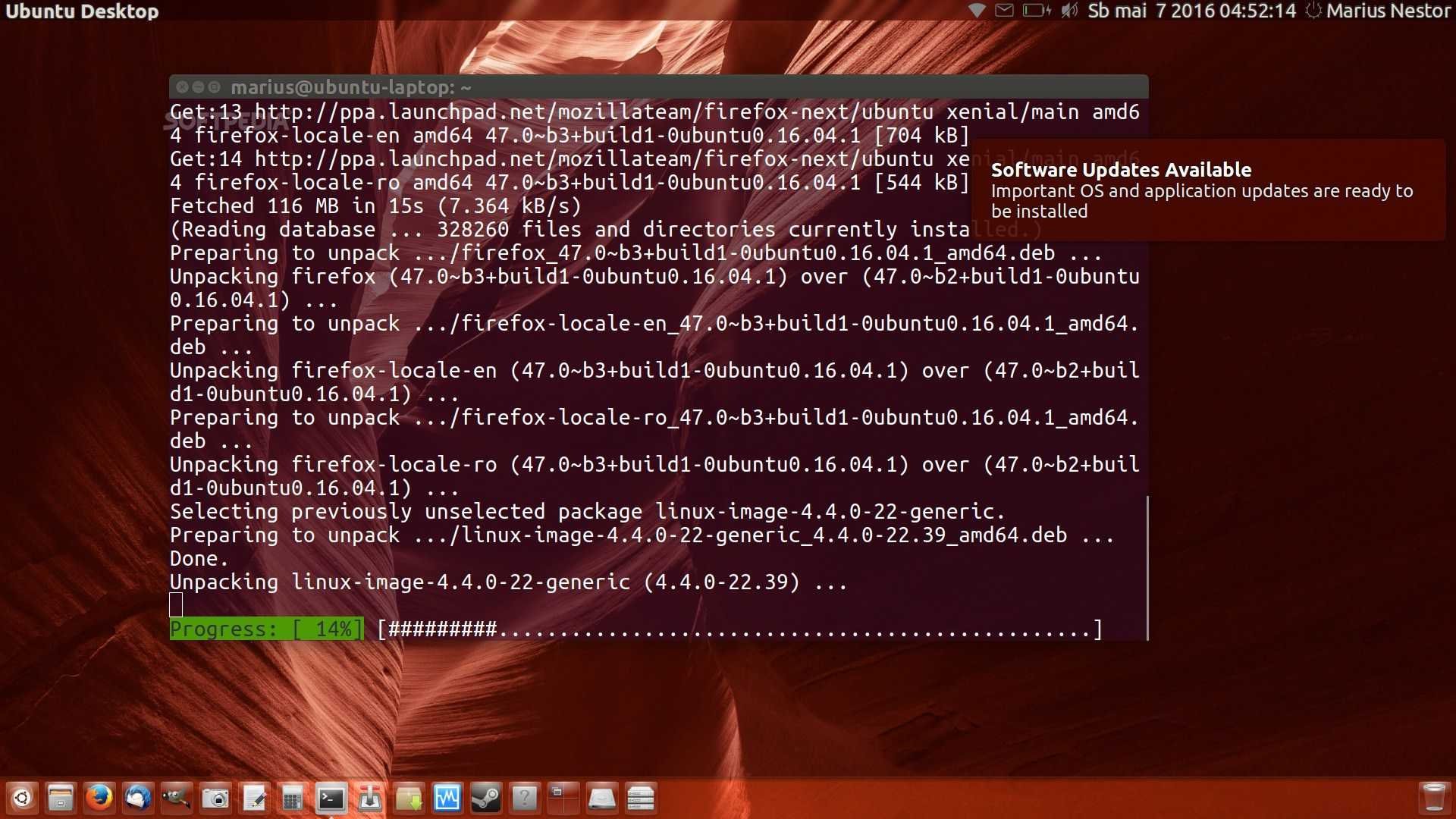Canonical has informed its community about the availability of a major update to their kernel Ubuntu 16.04 LTS (Xenial Xerus).
Yesterday's kernel update is also the first to be released for it Ubuntu LTS 16.04 since its official launch on 21 April 2016 and seems to be particularly critical because it repairs a total of fifteen vulnerabilities that have recently been discovered by various Linux kernel developers and hackers.
For more information on these fifteen vulnerabilities being repaired, you can read it Ubuntu security announcement USN-2965-1 posted by Canonical at 6 May 2016.
However, it is important to note here that these new vulnerabilities also affect the Linux kernel for Raspberry Pi 2 running Ubuntu 16.04 LTS, as well as the Linux kernel for processors Snapdragon, which also feature the Ubuntu 16.04 LTS (Xenial Xerus) operating system.
All Ubuntu 16.04 LTS users are urged to update their systems immediately, as the new version of the kernel (linux-image-4.4.0-22 4.4.0-22.39 for Ubuntu desktop and server, linux-image-4.4.0-1010-raspi2 4.4.0-1010.12 for Ubuntu for Raspberry Pi 2, and linux -image-4.4.0-1013-Snapdragon 4.4.0-1013.14 for Snapdragon processors) is available immediately.
Most of you will have already received the new OS update announcement, but if by chance you missed it, please open the auxiliary πρόγραμμα αναβάθμισης του software, και να το αφήσετε να πραγματοποιήσει τις πιο πρόσφατες ενημερώσεις και, στη συνέχεια, κάντε κλικ στο κουμπί "Install All" για την εφαρμογή τους. Ως συνήθως, μετά από μια ενημέρωση του πυρήνα, θα πρέπει να επανεκκινήσετε τον υπολογιστή σας.






